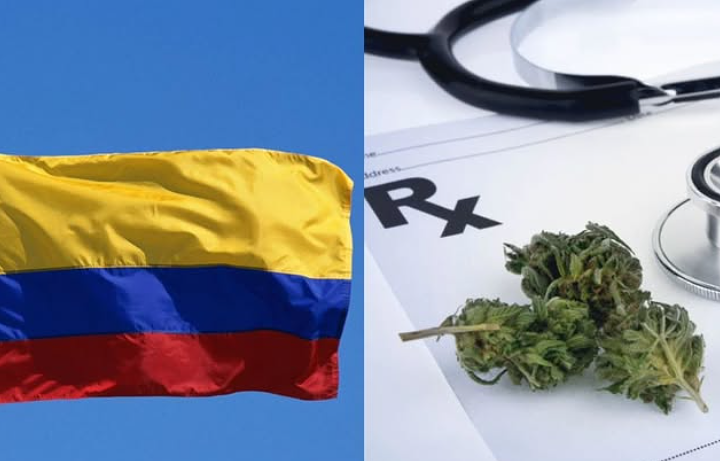
Colombia has taken a significant step forward in its cannabis policy recently by approving the sale of medical cannabis flower. This move, formalized by Decree 1138 of 2025, as first reported by Blu Radio, marks a huge change for patients, cultivators, and the nation’s economy. The new regulation allows pharmacies and drugstores to dispense cannabis flower for medical and therapeutic purposes to patients with a valid medical prescription. This closes a long-standing legal gap.
Since legalizing medical cannabis in 2016 and permitting the export of dried flower in 2021, Colombia had not allowed domestic sales of the flower itself. Patients could only access derivatives like oils and extracts. This new decree, signed by the Ministries of Justice, Agriculture, and Health, now classifies cannabis flower as a “finished product.” It is now accessible within the country’s borders. This is expected to improve patient access to safe, quality-controlled treatments. Furthermore, it will stimulate the local economy, particularly for small and medium-sized growers.
A New Era for Medical Cannabis in Colombia
With the new Decree 1138 of 2025, the national government has redefined the rules surrounding cannabis use. It permits the sale of the plant’s flower for medical purposes for the first time. This means that pharmacies, drugstores, and even veterinary establishments can now sell cannabis flower to individuals who present a valid medical certification.
Under the decree, manufacturers can use the flower to produce a range of medical products, including medicines, creams, and other prescribed preparations, as long as health authorities approve them. This regulatory shift is a crucial component of Colombia’s larger National Drug Policy for 2023–2033. It aims to create a more comprehensive and evidence-based framework for drug regulation.
The policy, titled “Sowing Life, Uprooting Drug Trafficking,” focuses on public health and safety over punitive measures. By ensuring patients have access to reliable and safe treatments, the government hopes to improve health outcomes. It also aims to reshape public perception of medical cannabis.
Boosting Small Growers and the Rural Economy
A key element of the new decree is its strong support for small and medium-sized cultivators. For the next two years, these smaller growers will have exclusive rights to supply the domestic market with medical cannabis flower.
This provision is designed to empower local communities that have historically cultivated cannabis. It helps them transition into the legal supply chain. The government’s goal is to combat illegal markets by providing a viable, legal alternative for these producers.
To facilitate this transition, the Ministry of Justice has been given five months to develop a simplified licensing system. This system will reduce bureaucratic hurdles and provide state support to help strengthen the projects of small and medium-sized growers.
This initiative is seen as a reasonable and proportionate measure that strengthens both the national pharmaceutical and agro-industrial sectors. It ensures a fair and stable supply for patients.
Regulatory Oversight and Quality Control
To ensure the safety and integrity of the new medical cannabis market, the decree establishes a clear division of responsibilities among several government bodies. The National Narcotics Fund (FNE) will oversee manufacturing licenses and monitor all cannabis products subject to control.
Meanwhile, the Ministry of Justice will be in charge of supervising licenses for seeds, cultivation, and both psychoactive and non-psychoactive plants.
These entities will work in coordination with INVIMA (the national health oversight agency) and ICA (the agricultural oversight body). Together, they aim to maintain traceability and prevent any diversion of products into the illicit market.
The decree also introduces specific guidelines for magistral preparations—customized medications for individual patients. These must be created in licensed facilities by qualified pharmacists using only Colombian-grown ingredients.
Furthermore, products with low THC content will no longer be classified as controlled substances. This change is expected to encourage more research into non-psychoactive, science-backed formulas.
The Global Context of Cannabis Legalization
Colombia’s decision to authorize the domestic sale of medical cannabis flower aligns with a growing global trend. Many countries are recognizing the therapeutic potential of cannabis and are creating legal frameworks to support patient access.
For instance, Germany recently raised its medical cannabis import limit to 192.5 tons, signaling a significant increase in demand. Similarly, Morocco has begun exporting its first batches of cannabis-based medicine.
In the Americas, several nations have already moved to legalize cannabis for medical use, including Uruguay, Ecuador, and Peru. Colombia’s progressive stance, particularly its focus on supporting small-scale farmers and ensuring quality control, positions it as an important player in the evolving international cannabis market.
Despite Colombia’s recent approval of medical cannabis sales, some lawmakers continue to advocate for the full legalization of adult-use cannabis. They argue that it is a separate issue that also needs to be addressed. President Gustavo Petro has been a vocal critic of the traditional war on drugs and has encouraged Congress to consider full legalization. This, he believes, is a way to reduce violence and generate economic opportunities.
Follow and Like:
Instagram: @ruderequipment
LinkedIn: Ruder Equipment
